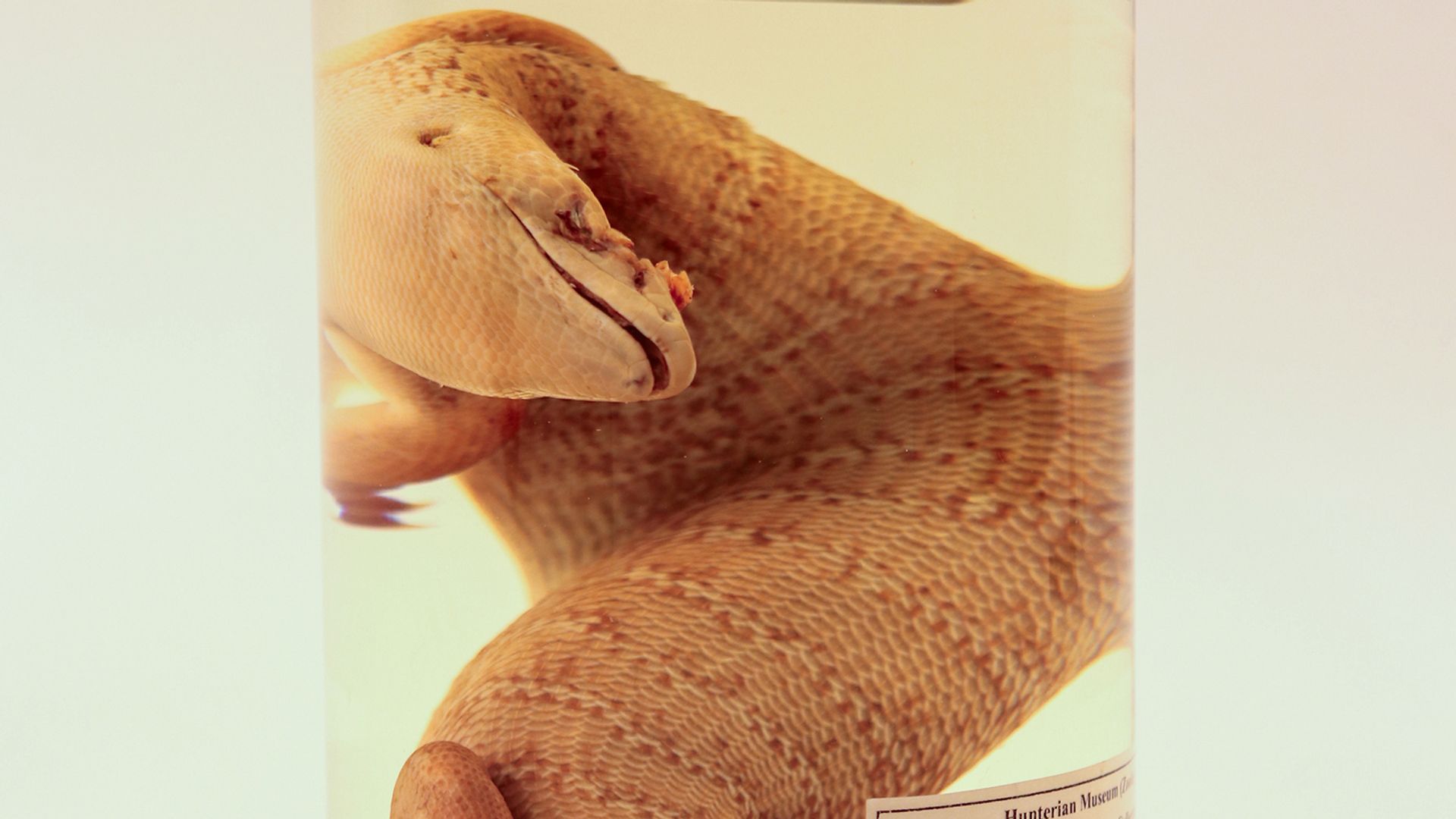A 170-year-old lizard specimen is to be taken back to its Jamaican homeland from Scotland as part of reparatory justice moves.
The Jamaican Giant Galliwasp, a species now presumed extinct, is thought to have been collected in the 1850s and became part of the University of Glasgow collections in 1888.
A team from the University of the West Indies (UWI) and the Institute of Jamaica (IOJ) will go to Glasgow to retrieve the specimen in what is said to be the first repatriation of a natural history specimen in the Caribbean.
It comes after a 2019 memorandum of understanding between the UWI and University of Glasgow (UofG), which aims to foster collaboration in research and education and address the historical legacies of colonialism.
Professor Sir Hilary Beckles, vice-chancellor of the UWI, said: “By returning the galliwasp to its rightful place, we take a small but significant step towards laying the foundation for a regional and international discussion on repatriation.”
Giant Jamaican galliwasps were last confirmed alive in the 1800s. Their disappearance was due to the sugar cane plantation economy, which led to a loss of natural habitat and introduced predators such as rats to the island.
Read more from Sky News:
NASA chief says ‘secretive’ China is hiding military projects in space
Woman who called 999 more than 2,000 times in three years is jailed
British couple die on Caribbean island of Grenada after being found on beach
Slavery: ‘Now is the time’ for King Charles to apologise for monarchy’s role in brutal trade, campaigners say
Hundreds of convicts escape as armed gangs storm Haiti’s main prison in Port-au-Prince
Keep up with all the latest news from the UK and around the world by following Sky News
The specimen at the University of Glasgow’s Hunterian Museum entered the university’s collections in 1888 following ethnographical and zoological specimens being transferred from another Glasgow collection, the Andersonian Museum.
The Hunterian’s director Steph Scholten said: “We hope that this return will help foster further relationships between the University of the West Indies and the University of Glasgow, as well as deepen understanding of repatriation issues in the museum sector.”
Be the first to get Breaking News
Install the Sky News app for free
The specimen will return to Jamaica on 24 April.
An official handover ceremony will be held there and the lizard will be deposited in the Natural History Museum of Jamaica on permanent loan in the national flora and fauna collection for safekeeping and to ensure it is accessible to all Jamaicans.







